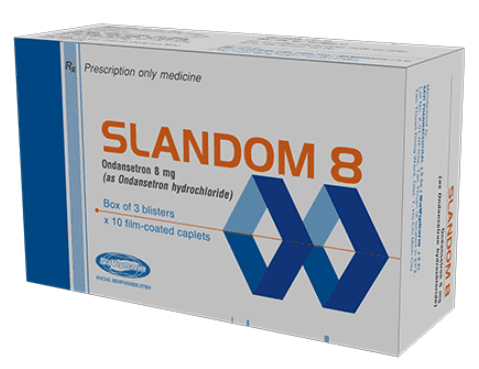This is an automatically translated article.
When caring for a loved one with terminal cancer, the family member must not only learn about treatments and palliative care to help the patient feel as comfortable as possible, but also provide emotional support. firmly for patients to overcome the pain caused by cancer in the last days of life.1. What is terminal cancer?
Terminal cancer is a phrase that scares many people with cancer. Because the possibility of a cure is very slim, it is almost impossible to cure it. Late-stage cancer is metastatic cancer - that is, tumors that have grown and spread to other parts of the body. Any type of cancer can become a terminal cancer if not detected and treated in time.End stage cancer cannot be cured, so treatment methods are mainly focused on making the patient as comfortable as possible, in order to reduce the pain and prolong it life.
2. Signs and symptoms of late stage cancer
Death from cancer usually occurs when a person's health becomes weaker and more tired for several weeks or months. It is not always possible to predict how long a person will live with terminal cancer. However, the following common signs and symptoms can be relied on to identify a sick person entering the last days of life:Weakness and exhaustion. The need to rest and spend a lot of time sleeping. Weight loss, muscle loss. Loss of appetite, difficulty swallowing. Reduced ability to talk and concentrate. Loss of interest in the outside world.

Ung thư giai đoạn cuối khiến người bệnh sụt cân
Shortness of breath . Pale skin, especially on the hands and feet. Dry mouth and lips. Decreased urine output. Loss of bladder and bowel control. The body loses control when it works. Confused about the information.
3. Treatment methods for late stage cancer
End stage cancer is incurable. However, there are many treatments available to help patients feel more comfortable. There are several treatment options that patients can choose from, such as chemotherapy or radiation therapy. These measures may prolong a person's life or feel better for a certain amount of time, but this is not a viable option.
Nhiều phương pháp điều trị ung thư giai đoạn cuối giúp bệnh nhân thoải mái hơn
3.1 Palliative care for patients with terminal cancer
Palliative care for cancer patients is therapy that improves a patient's quality of life by meeting their physical, mental, and psychological needs, making them as comfortable as possible.During cancer treatment, some side effects may occur and affect the patient's daily life. Therefore, the patient's family may ask the doctor to prescribe medicine for the patient's nausea due to the side effects of drugs that shrink tumors, aid sleep, or reduce depression.
3.2 Make the patient feel comfortable
Family members and carers can help the sick person become more comfortable during this time. Doctors can guide the patient's family through the steps of care based on the patient's specific condition and needs. You can refer to the methods of pain relief for cancer patients according to the instructions below to help patients feel more comfortable:Use cushions when lying or sitting to make the patient feel comfortable. Help the patient change positions frequently. Change bed sheets at least twice a week or more often as needed. Elevate the head, or turn to the side to help the person breathe more easily. Use blankets to help keep the sick person warm, do not use electric blankets because they can cause fires. Massage the patient's body gently to circulate blood. Talk and comfort the patient. Keep the patient's mouth and lips moist. Relatives can give the patient the liquid to drink with a spoon or a straw if the patient is able to swallow.

Massage cơ thể người bệnh ung thư giai đoạn cuối nhẹ nhàng để lưu thông máu
4. Methods of pain relief for cancer patients
Cancer can cause different types of pain, but there are ways to manage cancer pain. Uncontrolled painful terminal cancer often worsens a patient's health and causes other complications such as fatigue, anger, depression, stress and confusion. These symptoms make it harder to focus on spending time with family members and friends.One of the best ways to treat pain associated with terminal cancer is to prevent pain from developing or getting worse. You can give the patient medication to relieve pain. It is important to take the medication regularly to maintain steady levels of the drug in the body. This is the most effective way to relieve pain.
There are different types of pain relievers, depending on the type of drug and the patient's health condition, doctors will prescribe it in different ways. Some medications can be taken by mouth, injected into a vein, or as a patch.

Bệnh viên Vinmec hiện có điều trị chăm sóc giảm nhẹ cho bệnh nhân ung thư giai đoạn cuối
Certain medications used for other health conditions can help with pain, especially nerve pain. These include antidepressants, such as Duloxetine (Cymbalta), and drugs that prevent seizures, such as Gabapentin (Gralise) and Pregabalin (Lyrica).
In addition, some other methods can be applied to control cancer pain, such as: Acupuncture; Biofeedback method: Control body functions such as heart rate, relax muscles to relieve pain; Breathing exercises and meditation; Apply some activities to distract the patient's mind from the pain: Take a warm bath, read a book, watch TV, listen to music, walk....
Please dial HOTLINE for more information or register for an appointment HERE. Download MyVinmec app to make appointments faster and to manage your bookings easily.
Reference source: Cancer.net












